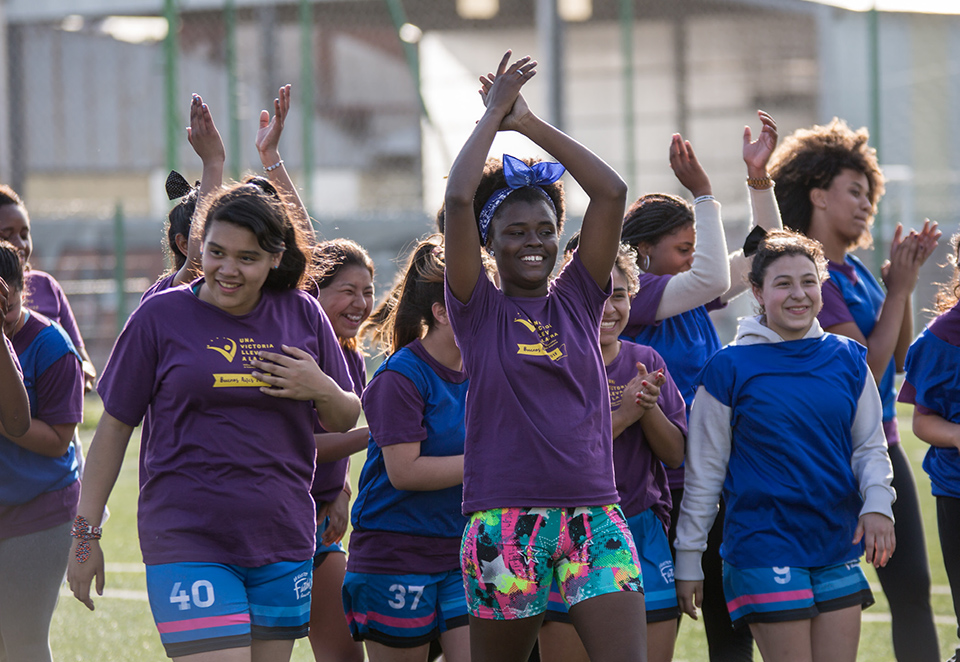Building back better: the future of sports for women and girls in times of COVID-19
Date:

Exactly one year after the final of the Women's World Cup in France - a time when women's sports was gaining unprecedented prominence - UN Women held a webinar and asked 10 women leaders in different areas of the sports ecosystem the following question: How can we best rebuild the future of sports for women and girls in times of COVID-19?
As the sports world cancels or postpones events, schools are closed, and people stay home, the many gaps that already exist between women and men, girls and boys, in sports can be deepened. This is what UN Women's Policy Brief "COVID-19, women, girls and sport: building back better" demonstrates.
According to the document, which was presented during the webinar by UN Women's Regional Director for the Americas and the Caribbean, María Noel Vaeza, women and girls are more impacted than men and boys in at least five areas - leadership and governance; gender-based violence; economic investments; media representation; as well as opportunities for participation in sports programmes.
Here are some of the webinar’s main takeaways:
- It is essential to raise awareness of the gender dimensions of the pandemic in sports. Women and girls in their diversity - of race, social class, physical ability, sexuality, among others, are impacted in different ways compared to men and boys.
- The rights achieved so far for women and girls cannot be lost and we must move forward on a more equal footing.
- Women must be included in leadership and decision-making so that no one is left behind.
- We must strive for an equitable distribution of the financial resources invested in women's and men's sports.
- We must strive for a balanced and non-stereotypical representation in the media.
- It is essential to invest in policies and procedures to safeguard and protect against all forms of non-accidental violence in sports.
- Access and participation of girls and adolescents in sports programmes, combined with life skills workshops should be supported.
- There is an urgent need to change the culture and social outlook towards women's participation in sports.
- Men must be involved as allies in gender equality efforts.
- When talking about sports, we must consider not only female athletes, but all women in the sports ecosystem.
- Monitoring and data production is essential for evidence-based decision making.
María Noel Vaeza concluded: "We need public policies that push for parity, we need to create accelerating alliances. It is important to involve men in promoting women's sports, we cannot do it alone and we cannot wait any longer".
The full replay of the webinar can be seen on the UN Women Facebook page.
Speakers of the seminar:
- María-Noel Vaeza – UN Women’s Regional Director for the Americas and the Caribbean
- Inés Arrondo – Argentina’s Secretary of Sports
- Elida Alfaro - Director of the Women and Sport Seminar at the Polytechnic University of Madrid and representative of the Ibero-American Women and Sport Network
- Silvia González - Director of the Women and Sports Commission of PANAM Sports
- Monserrat Jiménez - Deputy Secretary General and Legal Director of CONMEBOL
- Alexandra Gómez Bruinewoud - FIFPRO Senior Legal Advisor
- Marion Reimers - Fox Sports Journalist
- Joanna Maranhão - Former swimmer, president of the NGO Free Childhood and activist for the end of sexual abuse in sport
- Dorothy Rozga - Head of Children's Rights at the Center for Sports and Human Rights
- Joyce Rodrigues - student and former participant of the One Victory Leads to Another program